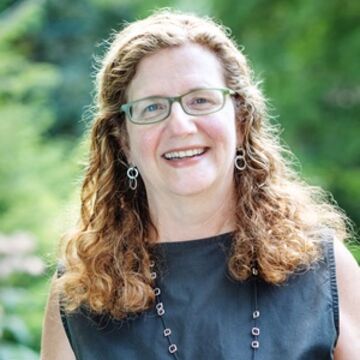

Jill Riddell
Associate Professor, Adjunct
Contact
Bio
Adjunct Assistant Professor, Writing (1999). BA, 1983, Northwestern University. Podcast: The Shape of the World Show. Publications: City Creatures; Trop; Chicago Reader; Chicago Magazine. Awards: Audubon Award for excellence in environmental reporting.
Personal Statement
I write stories, essays, and articles, and I collaborate on museum exhibitions and audio podcasts. Currently, I'm writing an ongoing, serialized novel for the West Coast literary website, Trop Magazine, and I'm working on a nonfiction book about my quest to find a species of plant or animal never seen before. I've been the vice president of a natural history museum, the co-host of a podcast on green living, and a newspaper columnist. I have a small urban farm in Chicago with apple trees, vegetables, and honeybees.
Current Interests
I write essays and stories, and I also make audio pieces. I'm the host of The Shape of the World, a podcast about cities, nature and people. I collaborate on museum exhibitions and other multimedia art projects. Currently, I'm working on a nonfiction book about my quest to find a species of plant or animal never seen before. I've been the vice president of a natural history museum and a newspaper columnist. I have a small urban farm in Chicago with apple trees, vegetables, and honeybees. I serve on the City of Chicago Mayor's Nature & Wildlife Committee.